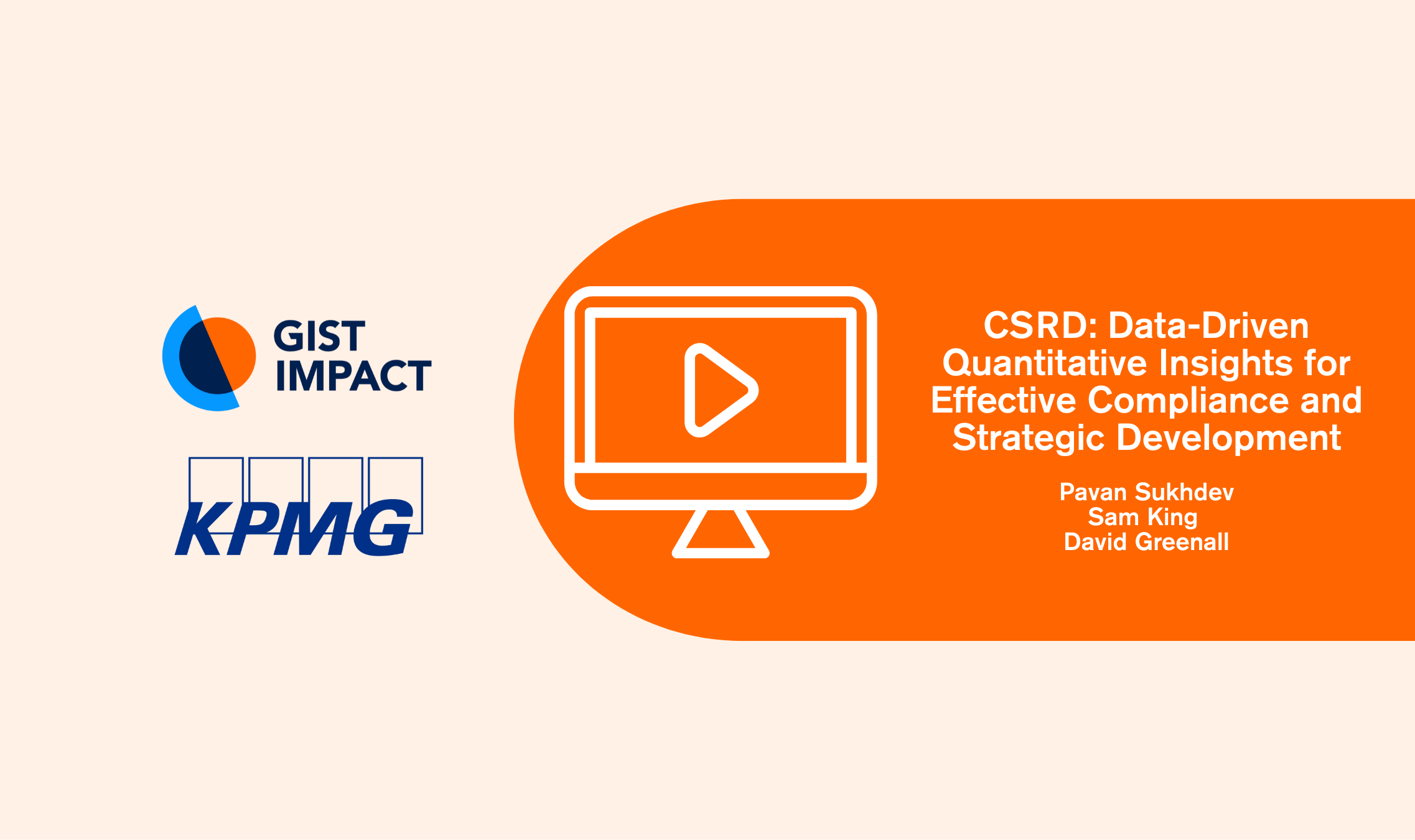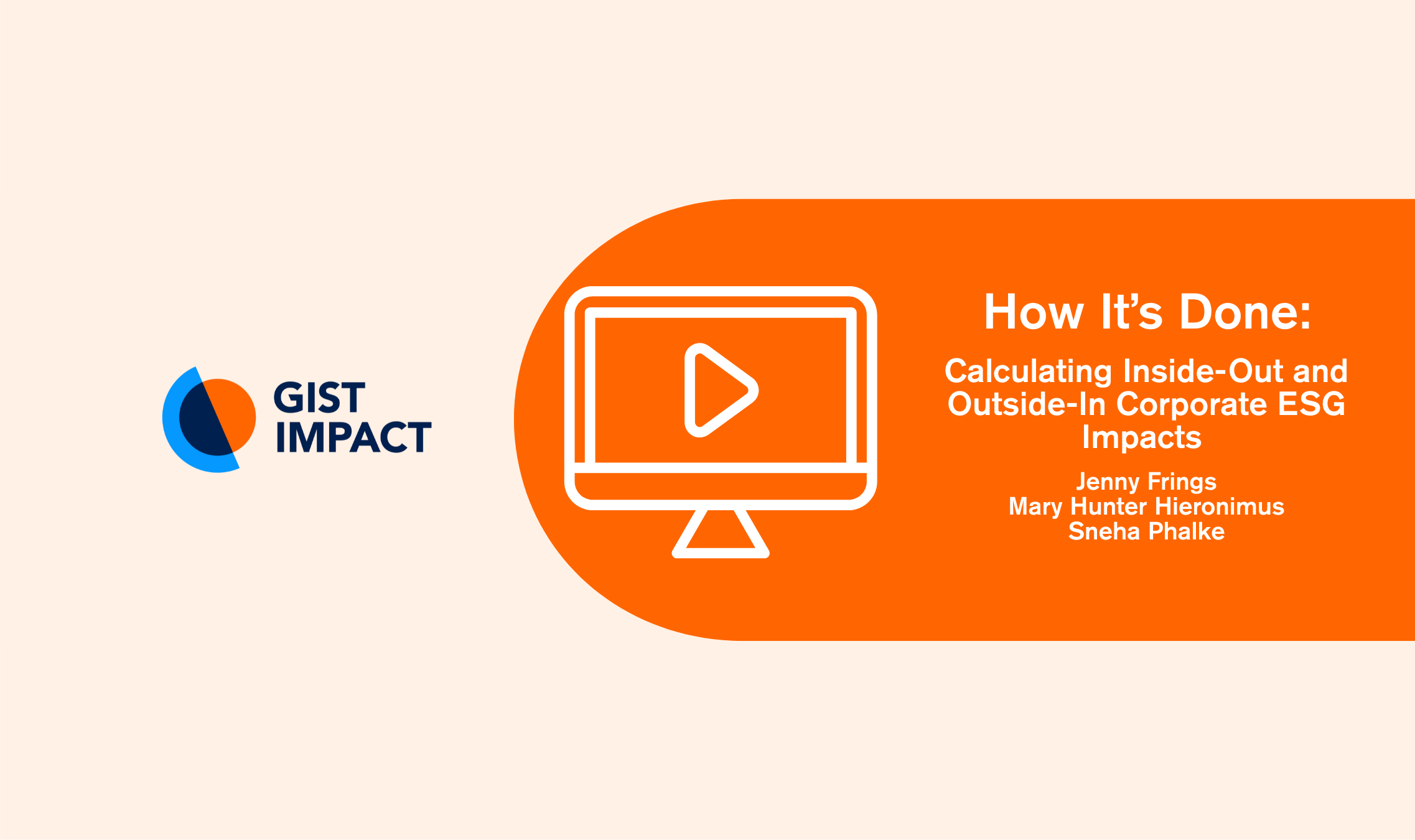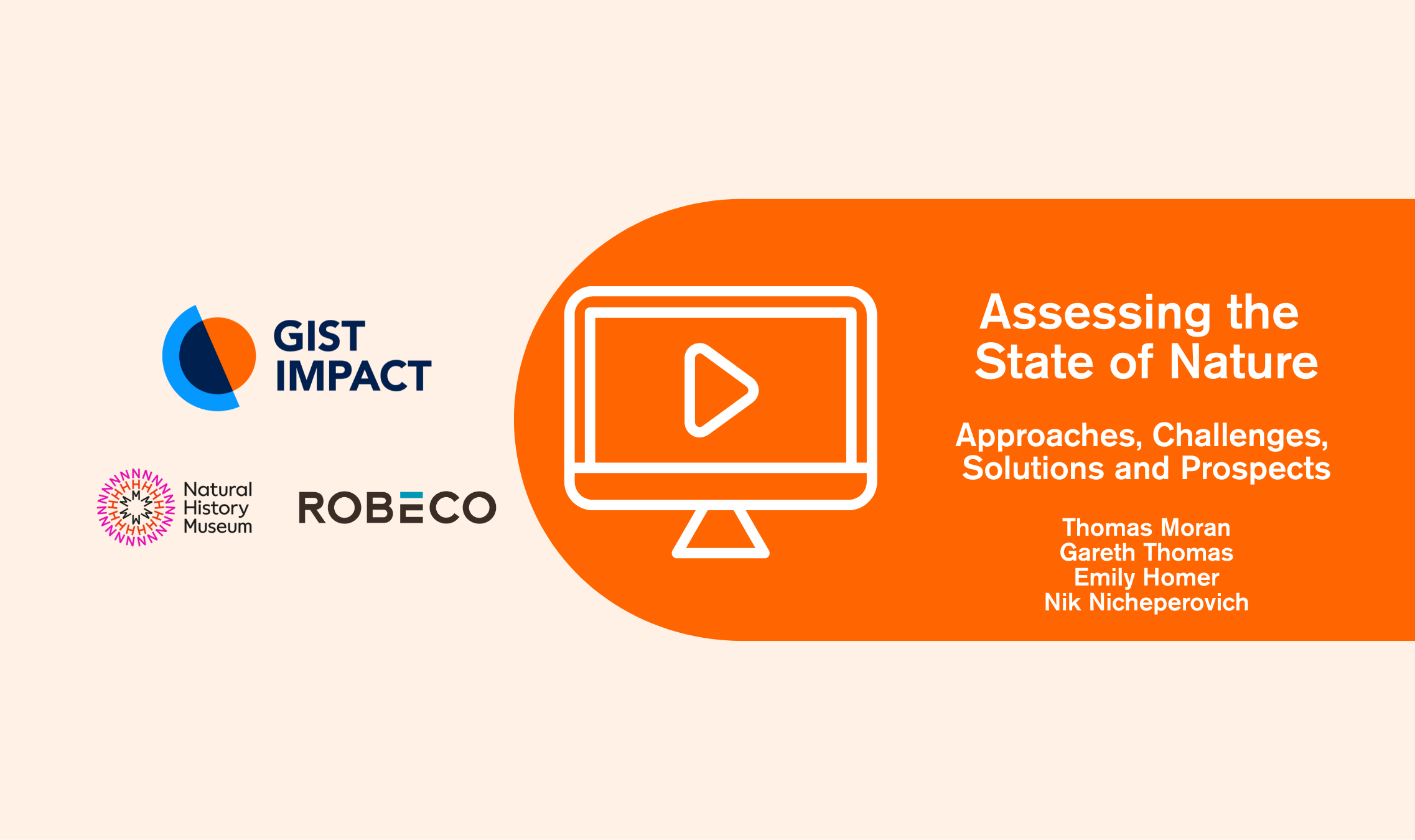In our latest webinar, GIST Impact CEO Pavan Sukhdev and KPMG International Global Managing Director David Greenall discussed the topic of “CSRD: Data-Driven Quantitative Insights for Effective Compliance and Strategic Development“.
The wide-ranging discussion delivered crucial insights across key topics, including:
Why objective quantitative and scientific data is a key requirement
- The evolution and progress of data and methodologies since the late 1990s.
- The key distinction between stakeholder inputs and quantitative data.
- The definition of quantitative and scientific data.
The challenges facing companies when including quantitative data in their CSRD process
- The need to contextualise data for accurate interpretation, as per EFRAG’s latest ‘State of Play (Q2 2024).
- The strained capacity within reporting companies and the resulting reliance on 3rd party support.
- The need to balance compliance with value creation.
The opportunity of impact valuation as a time-saving, industry-leading approach to assessing impact materiality
- The development of impact valuation alongside the GRI impact materiality framework over many years.
- The usefulness of impact valuation in offering objective, location-specific insights that ensure data is context-specific and science-driven.
- The transformative power of data and technology in operationalising the efficient calculation and valuation of impact.
The alignment between impact valuation and EFRAG guidance
- The consideration of scale, scope and irremediable character in both EFRAG and impact valuation methodologies.
- The interdependence of scale, scope and irremediable character.
- The importance of considering not only direct but also indirect impacts.






